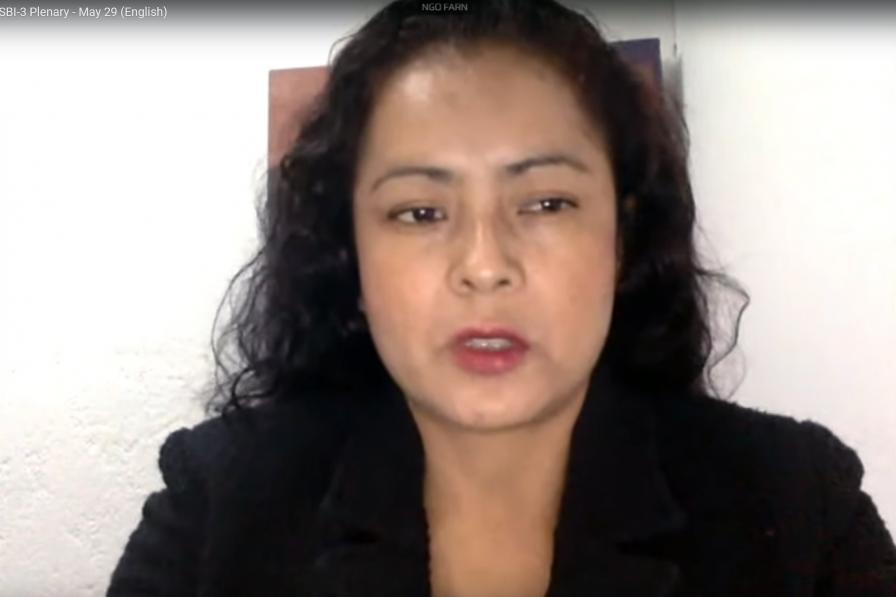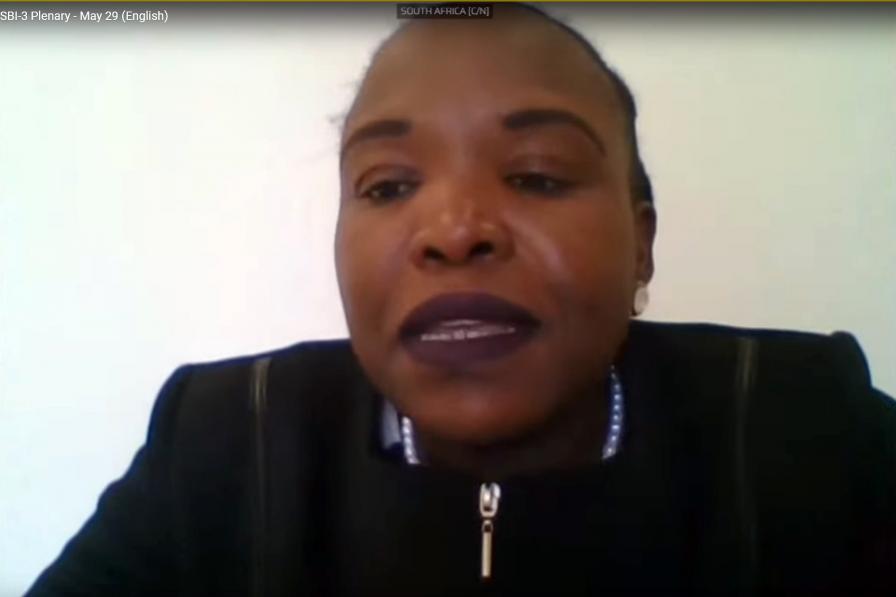On Saturday, 29 May, the third session of the Subsidiary Body on Implementation (SBI-3) of the Convention on Biological Diversity (CBD) continued its deliberations in preparation for the 15th session of the Conference of the Parties (COP-15).
During the three-hour session, delegates addressed:
- issues related to the post-2020 global biodiversity framework (GBF), including a post-2020 gender plan of action and a communication strategy;
- items related to the Nagoya Protocol on access and benefit-sharing (ABS), including specialized international ABS instruments and a global multilateral benefit-sharing mechanism;
- review of effectiveness of processes under the Convention and its Protocols; and
- a conference room paper (CRP) on review of progress in the implementation of the Convention and the Strategic Plan for Biodiversity 2011-2020.
Post-2020 Global Biodiversity Framework
Delegates continued Friday’s deliberations on the item. Plenary heard statements from major groups and observers, who highlighted, among other issues, the need to:
- take a rights-based approach to the GBF;
- develop a global species action plan to assist with implementation; and
- ensure predictable resources and strengthened capacity for implementation of the gender action plan.
SBI Chair Charlotta Sörqvist (Sweden) established a contact group to address the draft implementation plan and capacity-building action plan for the Cartagena Protocol on Biosafety, co-chaired by Rigobert Ntep (Cameroon) and Rita Andork (Hungary). The contact group will meet on Friday, 4 June. CRPs will be prepared on the gender plan of action and the communication strategy.
Specialized International ABS Instruments
Delegates focused on criteria that could be used to identify a specialized international ABS instrument (Nagoya Protocol Art. 4.4), and what could be a possible process for recognizing such an instrument. They highlighted, among other issues:
- the need for mutual supportiveness between the Nagoya Protocol and specialized ABS instruments, in order to ensure fair and equitable benefit-sharing;
- the sovereign rights of countries to recognize such instruments;
- the need to avoid fragmentation of international ABS regimes;
- the need for cooperation and coordination among relevant processes; and
- the rights of indigenous peoples and local communities, including women and youth.
A CRP will be prepared.
Global Multilateral Benefit-sharing Mechanism
Delegates addressed a synthesis of views on a global multilateral benefit-sharing mechanism, a peer-review study examining cases that may support the need for such a mechanism, and a draft recommendation, including a proposal for establishment of an Ad Hoc Technical Expert Group (AHTEG) on the matter. Parties expressed divergent views on whether a global multilateral benefit-sharing mechanism is needed and whether an AHTEG should be established.
SBI Chair Sörqvist established a contact group, chaired by S. Kerketta (India) and Thomas Greiber (Germany). It will meet on Wednesday, 2 June.
Review of Effectiveness of Processes under the Convention and its Protocols
Discussion focused on experience with concurrent and with virtual meetings. Many delegates underscored that the organization of virtual meetings aims to respond to the current extraordinary circumstances and should not be considered a precedent for holding virtual meetings in the future. They further highlighted structural and technical challenges for developing countries that undermine their full and effective participation in virtual meetings, and called for ensuring transparency and fairness, including through more equitable scheduling of sessions.
A CRP will be prepared.
Plenary will resume on Sunday, 30 May 2021.
To receive continuing coverage of this event delivered to your inbox, subscribe to the ENB Update newsletter.





